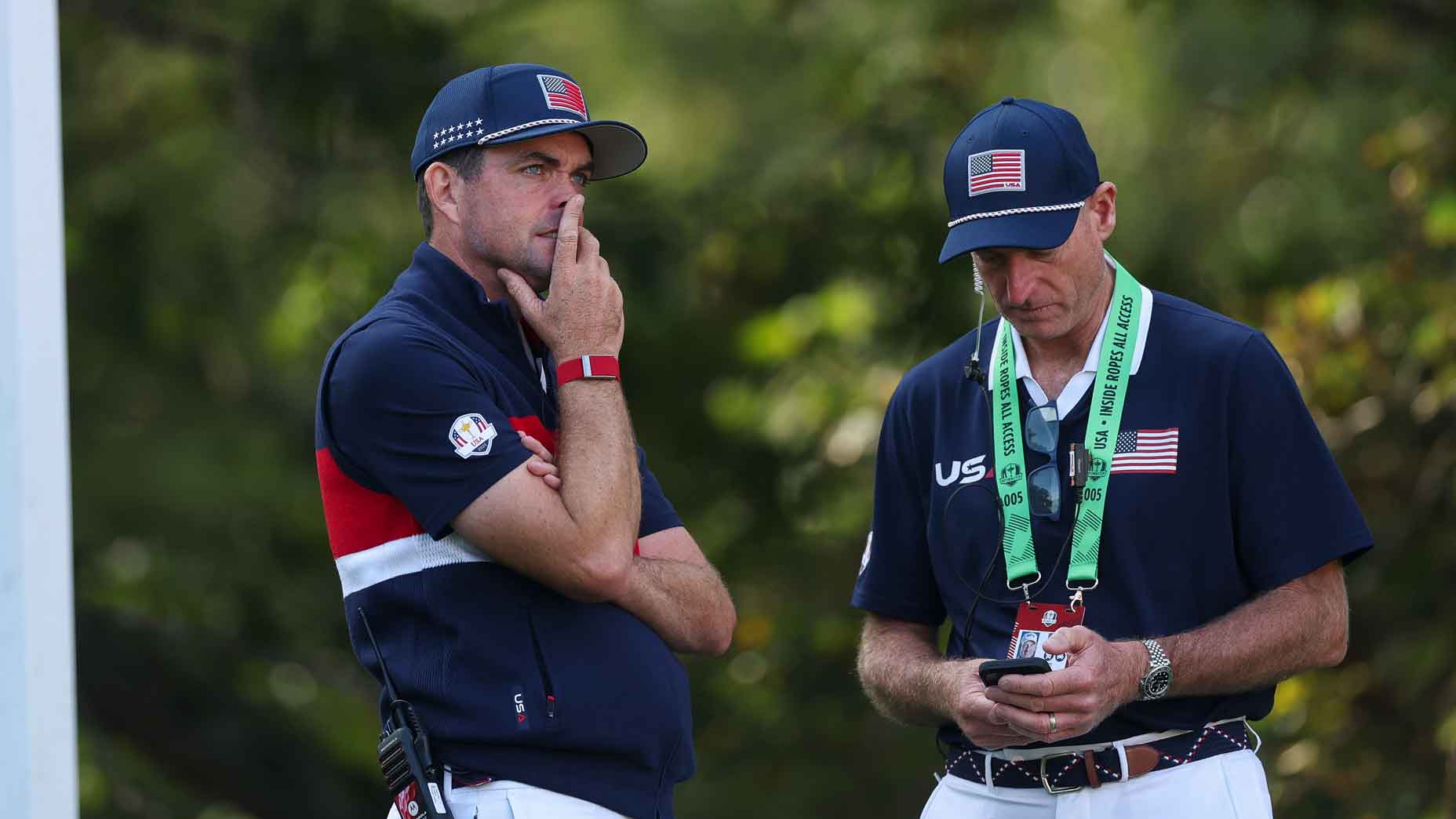If you watched Tiger Woods miss the cut last week in the Phoenix Open it’s tough to disagree with the majority of GOLF Magazine’s Top 100 Teachers who believe he has caught the chipping yips. It’s not something we would wish on our worst enemy. As Sports Illustrated’s Gary Van Sickle wrote from Scottsdale, “Even repeating the y-word goes against golf’s code of behavior because saying it or writing it may increase the chances of you catching it.”
If you, like Tiger, have got the chipping yips, here’s some proven methods to beat them.
1. A slight adjustment to your stance can help you get rid of chunks forever, as demonstrated by Top 100 Teacher Brian Mogg.
2. Here’s a tip from Top 100 Teacher John Elliott Jr. to shorten your chipping stroke and make solid contact every time.

The next time you face a chip shot, think about your stroke being SAD—Short, Aggressive and Down. The enemies of good chipping are LPU—Long, Passive and Up. Do any of those and you’ll CSC—Chunk, Skull or Chili. So here’s how you can be SAD about your chipping game in 10 minutes.
Take a pitching wedge or 9-iron. Set up with a narrow stance and play the ball about midway between your heels.
Lay a second club on the ground one inch outside your right foot. The idea is to swing over this club on the way back and down to the ball. Swing back until your hands are about even with your right pocket. This is all you need—any longer and you’ll decelerate on the downswing to compensate.
Pull the club aggressively down to impact with your left hand. Your wrists and hands should feel firm—that’s how you know you didn’t try to scoop at the ball. You’ll make a short follow-through and see your ball track to the hole.
I once had a student whose chipping stroke was way, way too long. To change it, I stood about two feet behind him on his backswing path. I told him the price of the lesson would go up every time he hit me in the leg. He never hit me and learned to ditch his long chipping swing. So if possible, have a friend stand behind you when you work on the SAD technique. If you bruise his shin in the process, you buy the next round at the 19th hole.
3. Dave Pelz has a sure-fire method for chunk-proofing your pitches.

At least once, and maybe up to five times a round, you’ll face a shot that requires you to pitch the ball 10 to 15 yards over a hazard and onto the green. It looks like a tricky shot, but it’s not. You don’t even need to flop it. But you can bet that most weekend players will usually end up chunking the ball into the hazard. Is it fear? Could be.
But if this sounds like you, your problems are likely caused by bad technique. When forced to carry a hazard, you probably grab your usual pitching club (sand wedge, say), apply your normal grip and make a standard-length backswing. The trouble is, this sets you up for a 30- to 40-yard shot, so to compensate you decelerate into impact in a knee-jerk attempt to stop the ball from flying past the pin. That’s when you stub it.
Deceleration is a killer in wedge play. Here’s how to remove it.
1. CHOOSE LOFT
Keep your sand wedge in your bag and go with your lob wedge. The extra four to six degrees help create the loft and softness you need to pitch this one close without any extra effort.
2. SHORTEN THE CLUB
Grip your lob wedge at the bottom of the handle. Gripping down “shortens” the club and removes power from the shot.
3. SHORTEN YOUR BACKSWING
Cut it off at about hip height. Combining a short backswing with a short club encourages you to accelerate through impact rather than slam on the brakes.
Going from “normal” to “short” works. See for yourself. Hit some drives using your normal grip and swing, then a few more with your hands at the bottom of the grip. Same swing, serious yardage reduction. I don’t recommend this for driving, but it’s perfect for this lofted pitch.
If you’re facing a shot that’s even shorter, grip so far down the handle that your right index and middle fingers wrap around the steel of the clubshaft, and then make the same accelerating swing. With this hold, you’ll have to add a touch of extra knee bend and stand a little closer to the ball—otherwise, you’ll be too hunched over. Make a few practice swings to confirm that your short-club swing is bottoming out in the right place. Oh, and check that the grooves on your lob wedge are clean. A dirty clubface won’t impart enough spin to hold the shot once it hits the green.
Trust me—you’ll be pleasantly surprised by how well this technique works. So will your buddies. You’ll feel like you’re being aggressive, but your shots will come out soft and land right next to the hole.
For more news that golfers everywhere are talking about, follow @golf_com on Twitter, like us on Facebook, and subscribe to our YouTube video channel.






